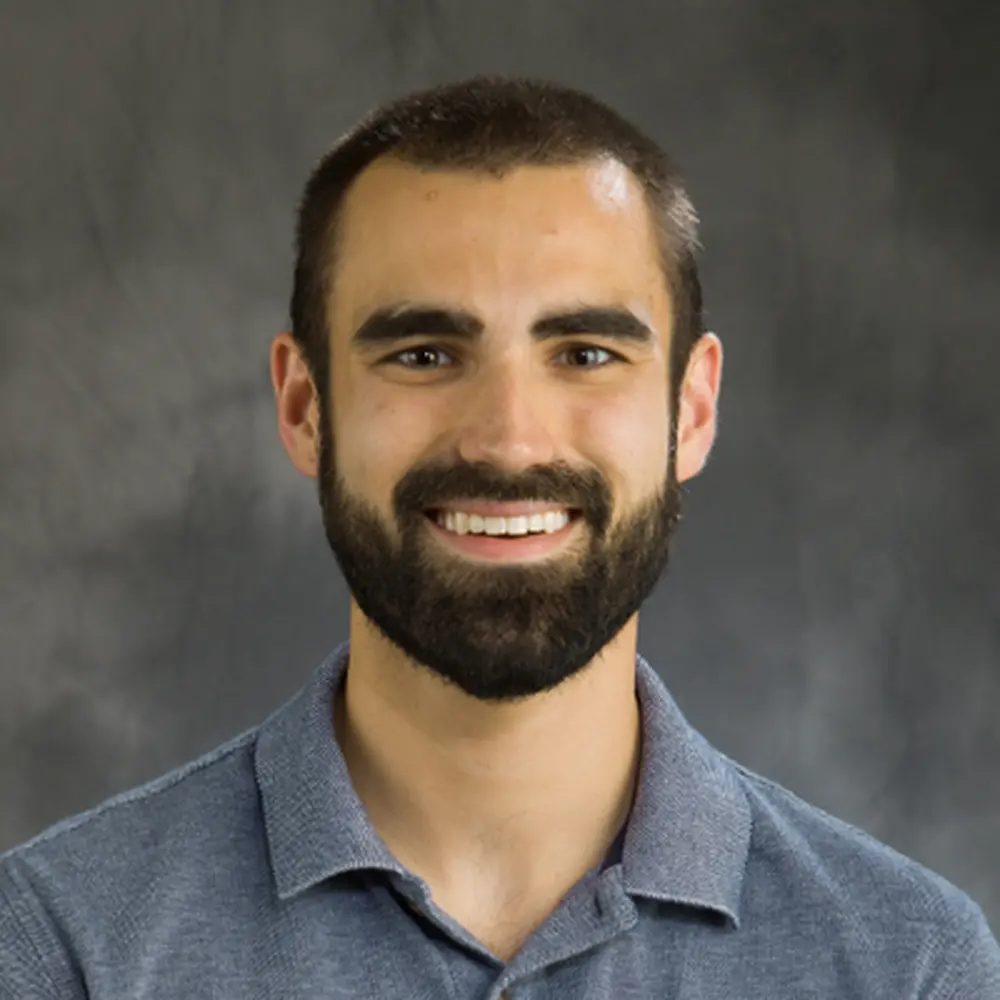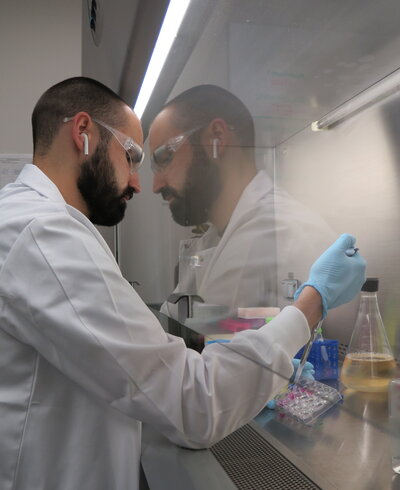
By CCIL Communications Team
Matthew Boudreau, a chemistry PhD candidate, has been awarded the prestigious F99/K00 grant from the National Cancer Institute (NCI) for his research in the Cancer Center at Illinois (CCIL) as a member of the lab of chemistry professor Paul Hergenrother, deputy director of the cancer center.
Boudreau’s research has centered around a novel therapeutic, ERSO, that successfully eradicates hormone-positive (ER+) breast cancer in multiple preclinical mouse models, and continues to be translated towards the clinic.
ERSO was discovered by Boudreau, in collaboration with CCIL member David Shapiro's lab. Boudreau attributes the success of the research to the invaluable collaborations that empower students and faculty on the University of Illinois campus. These collaborations have involved many other CCIL members including Timothy Fan and Erik Nelson.

“Having a collaborative environment like the Cancer Center at Illinois that is super excited about treating cancer is so empowering. When you’re around passionate people, that’s where the best science happens,” Boudreau said. “A high tide raises all boats.”
ERSO kills cancer cells selectively by leveraging the overexpression of the estrogen receptor, and in turn, hyperactivating the anticipatory unfolded protein response (UPR). This over-activation leads to a potent anticancer effect, ultimately resulting in quantitative tumor regressions in murine models.
Notably, ERSO also crosses the blood-brain barrier, enabling future applications for the treatment of breast cancers that have metastasized to the brain. Most therapeutics cannot enter the brain, which means brain metastases are increasingly difficult to treat.
“As we get better at treating cancer, we continue to see patients with challenging, drug-resistant disease. In the case of these challenging brain metastases, there are significantly less therapeutic options,” Boudreau said. “ERSO may be well-positioned to fill this therapeutic void in breast cancer treatment.”
As ERSO moves to clinical translation, the University of Illinois has licensed ERSO and its related technologies to Bayer and Systems Oncology, who are partnering to develop ERSO as a therapeutic approach for the treatment of metastatic breast cancer.
Boudreau’s motivation stems from a personal desire to further the understanding of clinical oncology and make an impact on large patient populations. He describes the research in his field as a superpower that synergistically combines the worlds of chemistry and cancer biology to investigate and eradicate cancer.
“Synthesizing novel chemical matter to solve problems and treat cancer; it’s a one-two punch. That’s what gets me up in the morning,” Boudreau said.
The F99/K00 grant will fund the remainder of Boudreau’s PhD studies at the University of Illinois at Urbana-Champaign and will fund up to four years of his postdoctoral research.
ERSO is licensed by Systems Oncology and Bayer AG.